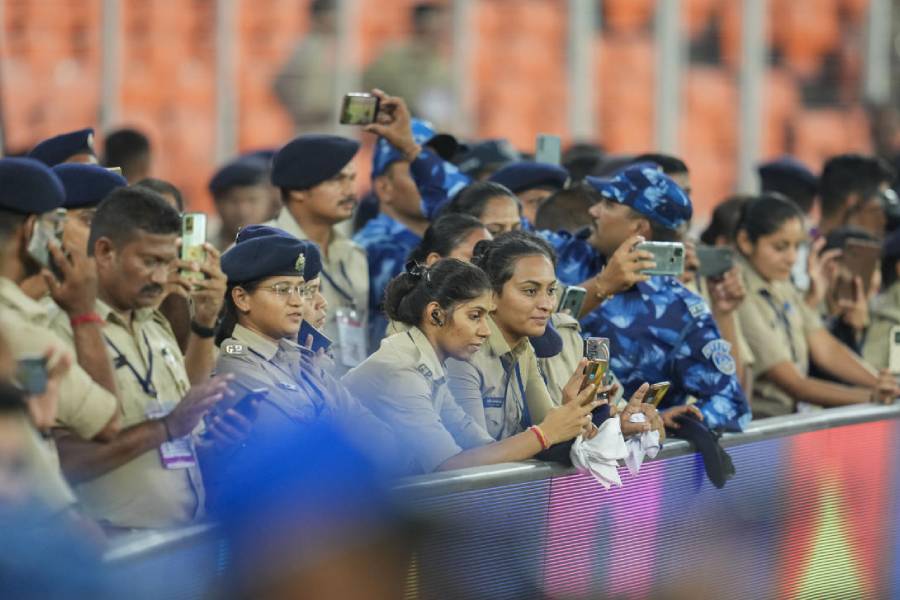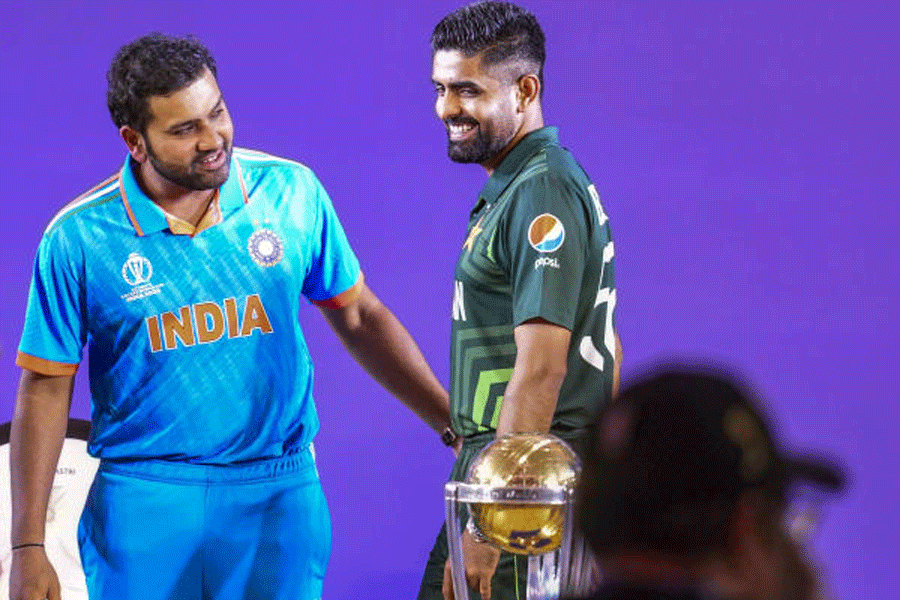If it was the biryani in Hyderabad, the Gujarati khakra and thepla have got the Pakistani players’ taste buds tingling in Ahmedabad.
Only a couple of months ago, the Pakistan government and its cricket board had been fretting over the idea of playing India at the Narendra Modi Stadium, citing security concerns. Such issues have been put on the backburner in a matter of 48 hours since the Pakistani team’s arrival here.
The movements of Babar Azam’s team have been largely restricted to the hotel and the stadium but there was no mistaking the fact that they have developed a liking for the city, given its mood and vibrant nature.
That, however, won’t guarantee them much luck with a predominantly home support base at the gigantic venue. While a few Pakistani journalists have been fortunate enough to arrive before the big-ticket clash, no visas have been sanctioned for the fans from across the border.
“This doesn’t mean much pressure because we have played in front of a large crowd several times before... in front of big crowds at the Melbourne Cricket Ground and all the big stadiums.... Yes, I think Ahmedabad will only be blue. So if Pakistani fans were allowed, it would have been good for us,” Babar said on the eve of the match.
Rohit Sharma is in no mood to be overwhelmed by the weight of the expectations of more than one lakh spectators.
“I don’t think there is any disadvantage. You feel nice about playing in front of your home crowd. They get behind you no matter what the situation of the game is,” the India captain said.
“My overall experience playing, not just in India, even outside India, we get massive support. So, I have so far never experienced where the crowd has gone against us or anything like that. So, I look at this as a good advantage, big advantage. We know that eventually it boils down to playing good cricket,” Rohit said.
“A lot of the guys in the team love a big crowd, the cheer, the noise in the ground. So yeah, the boys really enjoy it.”
It’s about not just crowd support but also raising one’s game to make such big occasions memorable.
Sachin Tendulkar’s upper cut off Shoaib Akhtar in the 2003 edition still fetches a staggering number of likes on YouTube. Rohit Sharma replicated that shot against Hasan Ali at Old Trafford in 2019 but nothing can upstage Tendulkar.
It would be futile to compare Saturday’s match with the intensity of the two teams’ quarter-final contest in 1996 or their semi-final meeting in 2011, the last two occasions the tournament was held in India. The circumstances were different and a knockout contest often comes with uncertainties resulting in more pressure on the players.
More recently, Virat Kohli has made it a habit to strike form on these big occasions. His two stunning sixes off Haris Rauf in Melbourne during the T20 World Cup, when India needed 28 off eight deliveries, are now part of cricketing lore.
The way Kohli launched an all-out attack in partnership with KL Rahul against the likes of Shaheen Shah Afridi and Naseem Shah in the recent Asia Cup match in Colombo will always play at the back of the Pakistanis’ minds.
The Indian batters have been in sublime touch, even without the dengue-hit Shubman Gill, and unless they panic in the worst of situations it will be tough to stop their winning run. Naseem’s absence has already left a gaping hole in Pakistan’s bowling armoury, and it’s tough to imagine the Indian batting order crumbling.
Pakistan generally tend to panic if they lose Babar and Mohammad Rizwan early, but young Abdullah Shafique showed amazing confidence to tide the team over a crisis during the chase against Sri Lanka.
Can India better their 7-0 record against Pakistan in the World Cup? “I don’t focus on the past, I try to focus on the future. Such records are made to be broken and I try to break them.... It depends on how you play on the day,” was Babar’s quick response.
Rohit didn’t wish to read much into it, either. Win or lose, it will not be about rivalry in the stands but about showing affection and friendship to the men from across the border.












